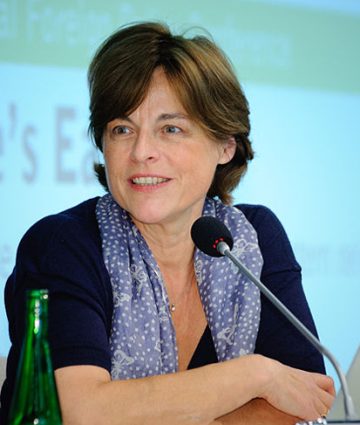The sinking legitimacy of Putin’s presidency

Marie Mendras,
Dr., Professor,
Sciences Po University,
France
Research Fellow,
CNRS,
Paris, France
The Russian legislative “elections” of 17-19 September 2021 are an open scandal. The results produced by the central election commission express the exasperation of an aging authoritarian regime, but do not reflect the free choice of the Russians. The gross manipulation of the vote reveals the vulnerabilities of a regime that has no connection with its constituents.
Independent estimates, before fraud, put the actual results at 38-40% turnout (official result: 51.6%) and 31-33% of the votes (official claim: 49,8%) cast for the “party of power”, United Russia. Of the 225 seats allocated in the single-mandate ballot, United Russia captured 198. The vote for the Communist Party was shrunk from 25-28% to 18.9%, thereby alienating a party that has always been loyal and carries a lot of weight in an increasingly dissatisfied electorate. (see the author’s more detailed analysis on https://desk-russie.eu)
Electronic voting was the ultimate tool for obtaining the desired results in Moscow and in a few regions. It worked at full speed in the hours after the closing of the polling stations. After the counting of votes on the evening of September 19, nine of the fifteen constituencies of Moscow showed the victory of a non-Putin candidate. This breakthrough was in good part due to Alexey Navalny’s Smart Vote strategy (vote for the candidate best placed to challenge the Kremlin representative). On September 20 early afternoon the results changed dramatically. All the constituencies were “won” by the Kremlin party, and the 12 million Muscovites will be “represented” in the Duma by fifteen docile deputies.
The Kremlin has lost its grip. It is misreading the mentality and concerns of the people. For example, the Minister of Defense and the Minister of Foreign Affairs were placed at the head of the United Russia party list. The calculation was to attract the pro-war and anti-Western voter. But this voter does not exist.
We can analyze electoral special operations as demonstrations of the transgression and violence that leaders must exercise in order to stay in power. Why does Vladimir Putin, apparently all-powerful, need to further degrade people’s suffrage and legislative assemblies, which have been under control for years. The temptation to push the limits of a vote to the unanimous threshold is always present in a nondemocratic regime. Clearly manufactured majorities of 90% plus are “crushing” in the literal sense of the word. They crush the opposition movements, which are banned from elections, and belittle the four “systemic” parties, which are endorsed by the Kremlin and passed the 5% threshold: the Communist Party, the reactionary LDPR party, Just Russia, and New People, a new organization, closely connected to the powers-that-be.
In Russia, the electoral field is not a battleground for ideas or proposals, but the last public space where Russians can express their objection to current policies, and their demand for change, through a protest vote. Like the Belarusians, they demonstrate a remarkable posture, both combative and peaceful. Never has a democratic activist called for violence in response to police force, not in Russia, not in Belarus, not in Ukraine.
Russia’s leaders watched in awe as Alexander Lukashenko was routed in the Belarusian presidential election on August 9, 2020. According to independent estimates, the dictator got at most 15 to 20% of the vote. His main rival, Svetlana Tikhanovskaya, won at least 60% of the votes cast (turnout was high).
Vladimir Putin does not need an overwhelming majority in the Duma to govern, and that is not why he has stepped up repression and rigging. He needs to hollow out public and social institutions. He wants to remain in power, in total impunity, without any control from citizens or institutions.
The head of state is also the head of the “sistema”, a system that has captured the res publica, the state and its resources. He must demonstrate that only he can impose and transgress. To do this, he must take the violation of civic rights and freedoms to a new level. Since 2020, the Kremlin has been following the path of Lukashenko: physical violence, heavy sentences, forced exile, and property grabbing.
These electoral SpetsOperatsii offer a new opportunity to study the manipulations that the authorities have to engage in, in order to sideline the voter without annihilating him. Indeed, the survival of the system depends on the survival of Vladimir Putin at the helm. And the leader of the system absolutely needs to stay President, if possible through a direct election, in claim of lost legitimacy. The next Operation Plebiscite is scheduled for the spring of 2024.
Expert article 3015
> Back to Baltic Rim Economies 4/2021
To receive the Baltic Rim Economies review free of charge, you may register to the mailing list.
The review is published 4-6 times a year.
